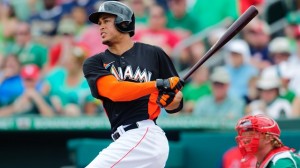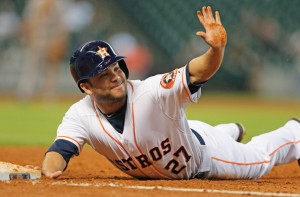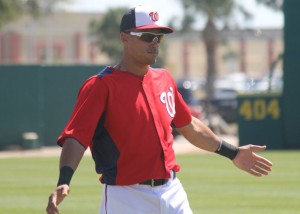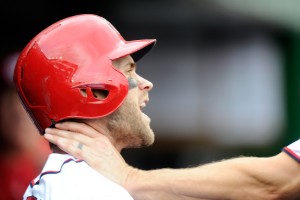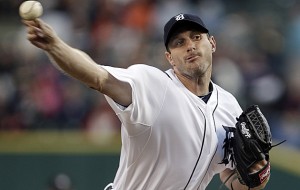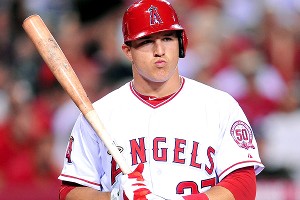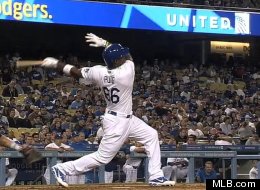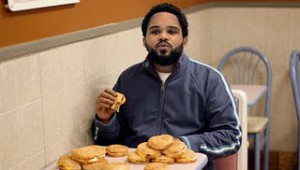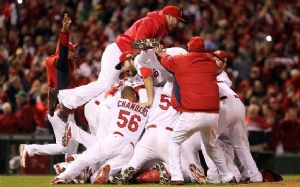
Lots of World Series questions from Boswell this time around. Photo unknown via usasportsbettinglines.com
Tom Boswell did his monday morning chat on 10/31 in the wake of the end of an epic World Series and a brutal 23-0 loss by the town’s #1 draw Redskins. Lets see how many baseball questions he takes…
Questions are edited for clarity and space, and I write my answer before reading Boswell’s. We’ll only address baseball-related questions.
Q: What do you make of the decision to post-pone game 6 of the World Series so early?
A: The implication being, it never really rained. Baseball was very quick to do cancellations this year, as we saw when a day game here was cancelled despite it being perfectly sunny outside. The extra day of rest enabled St. Louis to put Carpenter on the mound for game 7 on a relatively acceptable amount of rest (3 days), a key factor that helped turn the tide. Meanwhile Texas didn’t take advantage and kept the same rotation they announced at the beginning of the series (a point I made in this space, asking why Holland wasn’t recalled after his game 4 gem). I understand what MLB was worried about (starting, stopping, rain-delays and losing TV viewership), but the delay ended up affecting the world series in a way that the Rangers can’t be happy about. Boswell notes that he was in St. Louis, it was barely raining but he supported the decision at the time.
Q: Is St. Louis the “team of the decade,” since they went to three world series to the Yankees and Red Sox’ two?
A: Eh; both St. Louis WS victories were as weaker teams that ran the table in the playoffs. For me the Yankees are probably the “team of the decade,” with their winning percentage and 90% playoff rate being paramount. Boswell notes that St. Louis’s A-players are far better than the Nats comparable players, and that we have a long way to go.
Q: Are baseball players overpaid? (Citing Pujols’ contract demands, Sabathia’s opt-out and Jeter’s $12M/year)?
A: In a game where you can have MVPs on rookie contracts making $450k (Dustin Pedroia) and a large percentage of your team also on league minimums, its hard to say that a player is “overpaid.” Pujols IS the St. Louis Cardinals; if I were them i’d offer him ownership in the team, since he’s a legacy ball player that will always be as associated with St. Louis as Stan Musial. Sabathia is just taking advantage of the market; he knows that he can get a few more guaranteed years and more guaranteed money, so why not do it? Blame the Yankees for giving him that ridiculous opt-out clause in the first place. Lastly the Jeter contract was NOT about equating pay with performance; it was about the Yankees paying to save-face for their own vast overpayment of Alex Rodriguez when Jeter’s the captain and the clear face of the franchise. Boswell notes that most FAs show solidarity towards the efforts of their yesteryear colleagues who fought so hard for free agency, and try to push the envelope.
Q: Was Nelson Cruz’s miss on the David Freese triple a Bill Buckner-level gaffe?
A: Not at all; Freese‘s ball hit the fence and was nearly a walk-off homer. Cruz may not be the best fielder but that was no gimme ground ball (like the one that Buckner missed). Boswell puts it well; Cruz failed to make an excellent play while Buckner missed an easy one. No better way to put it.
Q: Was St. Louis’ victory about Karma (and then a long winded, conspiracy theory level email involving the Deckinger blown call)?
A: St. Louis’ victory showed what happens when you put together a very strong 3-4-5, have a couple guys on complete hot streaks, and add a dominant shut-down Ace starter to a good lineup with a deep bullpen. No matter what the record of the team or how they got into the playoffs, its a crap shoot as to who comes out. St. Louis went from being out of the playoffs to beating the Phillies within a span of a week. I hate it when wild card teams win the World Series, because it just validates more and more how the best teams are not being rewarded with post season success. Boswell notes just how good LaRussa’s teams have been.
Q: Was Lance Berkman’s comment about his batting thought process eye opening in the context of clutch hitting?
A: Not really; Berkman said that he (paraphrased) tries not to think about anything at the plate. And that’s the key to hitting in general; focus on the pitcher, not the situation or the pressure. Otherwise you’re distracted at the plate and will be an easy out. I think the questioner was trying to bat Boswell into a conversation about “clutch hitting,” which can’t really be proven by stat-nerds (so therefore they don’t believe it exists, despite 100 years of experience to the contrary. Grr). Boswell didn’t really address the question.
Q: Did Texas “deserve” the world series?
A: Not after blowing leads THREE times in game 6. The Rangers got everything the deserved there. Boswell notes, in response to the phrasing of the question, that Dallas has only recently (within the past few years) even had a legitimate “fan base” for baseball. It is good to see though the area starting to embrace its team.
Q: Thoughts on the way home field advantage is decided for the World Series?
A: Ridiculous. An exhibition that pulls all its stars after 3-5 innings and lets all-star “scrubs” (which are usually the one-per-team required guys from weaker franchises) decide home field advantage in the World Series. It was ridiculous that a divisional winning 96-win team didn’t have home field advantage over the barely-eked-into -the playoffs Cardinals. Either rotate back and forth year to year or give it to the team with the best record each year. It really shouldn’t be that much more complicated. Boswell says that he prefers the system stay the way it is except to say that a wild card team can never have home field.
Q: Will the Nationals go after the recently opted out CC Sabathia?
A: I doubt it; I think Sabathia is doing this purely as a procedural move to re-up with the Yankees for a ton more money. Nobody has reported his having any desire to leave New York. 10/31/11 update; this is confirmed by Sabathia re-upping with the Yankees for 5 years. Boswell seems to intimate that Sabathia makes sense on a team like the Nats. Hmm. Nothing about whether we’d actually go after him. Then some comments on just how much money Wilson cost himself in the post season. Agreed.
Q: Was this a better WS since it didn’t have the “best teams money can buy” like in Boston/NY/Philly?
A: I’m not so sure. Personally I like to see teams be rewarded for superiority over 162 games … but understand the desire of the league to have multiple playoff rounds for TV ratings and excitement. Boswell says it was a great world series. In arguable, but not the question.
Q: What do you think of LaRussa’s retirement? How does Davey Johnson rate compared to TLR?
A: Surprising; we don’t live in the St. Louis market so we don’t get the regular questioning of LaRussa to ascertain whether this was a surprising retirement or not. I’d rate Johnson relatively close to LaRussa; if Tony is one of the better managers ever, Johnson is still in the upper-calibre grouping. Boswell says this was a surprise announcement, but not really a surprise since LaRussa has had medical issues of late. He also notes that this does NOT help the Cards resign Pujols.
Q: Did Boswell save all his “alternative ending” stories and columns that he had to re-write because of some late game heroics or misfourtunes?
A: Boswell says it happens more than you think; he’s had 10-12 blown just in the past few months. Wow. He doesn’t save them though. I agree that they would make for very interesting reading.
